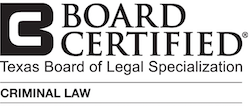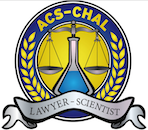Alan Dershowitz - "Reasonable Doubts"
On the Charlie Rose show of June 20, the main focus was still on Simpson's celebrity and wealth and I was asked about how high-powered lawyers could affect the outcome of the case. I responded that 'the quality of representation matters about ten percent in cases like this. It's like the quality of the surgeon. Whether you have the cancer matters a lot more than the quality of the surgeon, [and] whether you've done it...matters much more than who your lawyer is. There's a myth that wealth and brilliant lawyers can really turn guilt into innocence. It happens very rarely.'
- Alan Dershowitz, as quoted in the book, Reasonable Doubts: The Criminal Justice System and the O.J. Simpson Case
I read a book recently written by Alan Dershowitz on his involvement, and his particular viewpoints, about the famed OJ Simpson jury trial. The book is Reasonable Doubts: The Criminal Justice System and the O.J. Simpson Case. I love reading books about criminal defense lawyers because I find it very fascinating to analyze and consider the paradigm of others in my field of practice.
I enjoy, maybe even more, reading fictional books about criminal defense attorneys, especially and including the entire Lincoln Lawyer series. I enjoyed reading the works so much of the author, Michael Connelly in his depiction of the life of Mickey Haller (the Lincoln Lawyer), I read each of the books in the series literally consecutively, one right after the another. When I first started reading the original novel - I remember being convinced that the author must have been a criminal defense attorney at some point in his life because of his uncanny ability to accurately illustrate what it is like being a criminal defense attorney, through his depiction of the daily life of Micky Haller.
He wrote in such effective detail, I can recall, of the little things one has to deal with in doing this job effectively, from some of the monotony the work entails, to being totally dead on accurate when detailing what the inner thoughts were of the character when he would encounter an obstacle in his practice, etc. It was so spot on accurate I thought only someone who had personal experience practicing as a criminal defense attorney would know and be able to channel with that degree of accuracy the challenges, routines, and the overall nature of what a day in the life is like for those in my profession (and not just as a DA practising criminal law - but one who actually has represented people charged with crimes). It was astoundingly precise - and many times I remember feeling like I was reading my own thoughts. I learned later the author did consult many respected criminal defense attorneys in Los Angeles before he wrote each book - and I assume that was how he was able to know so much about the life and mindset of a criminal defense attorney, from the most subtle of things to the more extreme. I think I found that series of books so interesting to read because almost everything else in the fictional world - books, movies, and tv shows - are all very difficult for me to watch, because usually, they take such dramatic liberties, it is not even close to what it's like in the real world practice of criminal defense.
***A caveat to this is - almost every type of depiction of the jury trial process is so absolutely, blatantly wrong and incorrect - when watching some I have to restrain myself from not wanting to throw my shoe through the TV out of frustration at how astonishingly inaccurate they can be when detailing accounts and stories of being a lawyer, particularly things that occur in a courtroom and during a trial. It unnerves me beyond comprehension when I see something that is so backwards with how things are done, I cannot enjoy anything else about the show that may have been otherwise enjoyable to watch.
My father - Dennis Ceder - worked as a Texas High School football coach for 29 years. Almost every time we watched a movie about coaching - and usually only when it would be the depiction of a football coach - he would sometimes get downright angry and upset at how badly the portrayal was. For a direct translation of this - please watch the movie Varsity Blues and John Voight's laughable depiction of how a Texas High School Football Coach walks, talks, and acts. His portrayal in that movie literally made my father laugh out loud it was so ridiculous and wildly inaccurate. To him, it was more of a caricature of what it was like - maybe something akin to a sketch on Saturday Night Live. He once told me when I couldn't help myself from pointing out all of the errors in a movie we were watching during the scenes of a jury trial, and laughed and said that was what he felt like when he would laugh and critique any ridiculous, over the top portrayal of a football coach.
That being said - I generally only enjoy and appreciate non-fiction books about the world of criminal defense more than almost all fictional ones, because they do not have to take any dramatic license in trying to make them interesting to read. Like the book Dershowitz wrote about the OJ Simpson trials, non-fiction legal books are usually written by actual attorneys, who have worked in the trenches, actually doing this job for a living.
The book Alan Dershowitz wrote about the OJ Simpson trials was a fascinating read for me - and shed light on many issues I was unaware of that existed during his jury trial. If anyone reading this does not know who Alan Dershowitz is - he is a very famous criminal defense attorney, who actually practiced criminal law while also serving as a law professor at Harvard. You have probably seen him discussing some legal issue on TV - as his advice and insight is frequently sought on a range of legal issues, especially those relating to criminal law.
His role in the OJ Simpson trials was that of appellate counsel. Everyone knows and remembers how masterful and skilled Johnny Cochran was, how effective and intimidating F. Lee Bailey was (especially during the infamous cross-examination of Detective Mark Fuhrman), and how involved Robert Shapiro was (and how he tried to make sure his face appeared alongside OJ's at every opportunity, and never missed an opportunity to speak with any of the TV cameras around to give his thoughts and analysis of how something transpired pertaining to the trial.
If you watch closely during large portions of the trial, you will notice Alan Dershowitz sitting in the row of seats behind the counsel table. He is clearly seen and visible during the famous segment of Judge Eto reading the verdict of the jury, and Johnny Cochran and OJ hugging each other in celebration of the outcome.
Dershowitz wrote in his book that OJ called him his fallback guy. The innuendo to this is Dershowitz was saying OJ firmly believed in his innocence and the probability of obtaining an Acquittal, but just in case that didn't happen, he had Alan Dershowitz on the dream team as the backup in the event this didn't happen. Most of Dershowitz famous work has been in the appellate arena, which means he prefers to handle cases post-conviction (after an individual has been convicted, he has certain rights on appeal).
So OJ hired Dershowitz, one of the most famed criminal defense lawyers ever in the history of our nation, to watch and watch in the background to document everything that transpired during the trial to ensure that all of his appellate rights would be preserved well in advance. The majority of the book is an actual account of how Dershowitz did meticulously keep a record of everything he felt could be a possible area to explore on appeal, and because of the length of the trial, his list was pretty exhaustive by the end.
Obviously we know how the story ends on the OJ trial, but I can assure you that he would have been very well represented on appeal had the jury come to a different conclusion. The last chapter is actually a transcript of a mock appellate moot court of him arguing what he felt were the main issues for the most egregious error. While in his book he notes some of the biggest forms of error he believed occurred, he wrote how he had planned to only explore and argue the two biggest, to avoid watering down the weight of his most significant arguments.
A particular poignant passage from the book that stuck with me for quite some time was something I read he said to someone before he joined the dream team, but after OJ was accused of the murders and had retained counsel. He was interviewed to offer his opinion on what he thought of the attorneys OJ had decided to represent him. I will never forget his response for as long as I practice, because in many ways I find it incredibly true and accurate. The passage written in the book is:
On the Charlie Rose show of June 20, the main focus was still on Simpson's celebrity and wealth and I was asked about how high-powered lawyers could affect the outcome of the case. I responded that 'the quality of representation matters about ten percent in cases like this. It's like the quality of the surgeon. Whether you have the cancer matters a lot more than the quality of the surgeon, [and] whether you've done it...matters much more than who your lawyer is. There's a myth that wealth and brilliant lawyers can really turn guilt into innocence. It happens very rarely.'
This excerpt particularly stood out to me for a number of reasons. For one, at the time of me writing down these thoughts my father just passed after over two years of battling cancer. Obviously, all of the thoughts and feelings for me and what we went through with my father made this have particular significance.
Next, as stated previously, Alan Dershowitz is one of the most quoted and respected criminal defense lawyers in the entire nation. He is renowned for having an incredibly brilliant legal brain. He is right - I think most would agree that there is a prevailing notion that if an individual has money, regardless of the facts or the charge, they will somehow beat the charge. How the trial of OJ Simpson played out did little to dispel this belief among the general public. However, one I think is pertinent is how out of the brain of a genuine legal giant - he not only believes this to be far from true, but gives a fantastic analogy to help people understand his reasoning.
Dershowitz was saying that money and vast resources will not go hand in hand with buying innocence. In fact, he makes a vast differentiation between the two. He makes the comparison that before money and wealth come into the picture as a factor that would weigh in favor of someone accused of a crime - what matters EVEN MORE is what the facts and evidence are! Seems like a simple concept, right? Usually not the case.
I represent people accused of an assortment of criminal offenses. I work in the criminal justice system everyday. I have never come close to representing, or even participating, in a case like OJ Simpson, but I can say that there is a general belief among the general community that having a lot of money and resources will put someone at a significant advantage compared to others. What Dershowitz was saying is yes, it is a factor - but only one to be compared among many. What matters most? What is the evidence to be used against him? Law school 101!
The comparison to the doctor I think anyone can identify with. I am now an individual that is personally familiar with what the loss and sting of being diagnosed out of the blue with serious and terminal cancer. It is not a fun experience, and not one that I would wish on my worst enemy. Having gone through this exact experience myself being with my father when he first got his prognosis back, I can say throughout the process is the exact same as in the analogy by Dershowitz.
With my father, and when one is diagnosed with cancer - the first question anyone would ask, even if not in the medical field - is what type of cancer is it? Is it benign? Is it malignant? Is it deadly? Will I survive? If so, for how long? Will I have to undergo treatments? Will there be physical pain? How drastically will my life change? These are all the questions that immediately arise when someone is suddently forced into having to face the scenario of what to do if diagnosed with a potentially life threatening disease. At some point during this process, one is curious and wants information on who the best doctor it is to use. However, I can say after having gone through this exact experience in my family, this was on the lower end of the spectrum of things we were worried about.
Similarly, in my practice when advising individuals on which course of action to pursue, it is always based on logic, experience, and most important - weighing the amount and significance of what the evidence the State will introduce if it proceeds to trial. It is not written anywhere in the Texas Lawyer's Creed, the American Bar rules, the Texas Rules of Professional Ethics, etc. that one should give more or less weight to an individual that represent based on how much money they have.
There is not a criminal defense attorney anywhere that is worth their salt that would agree with the proposition that the biggest factor to consider when analyzing a criminal case and in advising a client, that the probability of them having a favorable outcome somehow is more or less significant based strictly on how much they are worth. Is it a factor overall? I think most would agree that absolutely is one factor to consider - because the ability of any defendant is enhanced at least somewhat if there will be no monetary constraints when preparing for a case, in terms of possible experts to use, consult, and possibly have testify, what level of detail this could bring in terms of having a very thorough private investigator also working the case, etc. So resources and finances do play a role in the context of defending against a criminal accusation - what Dershowitz was saying is the same as this, it's just not the biggest and most integral role.
The most significant piece of information when analyzing an individual's future health prognosis following a diagnosis of cancer is NOT trying to roam around the country to find which doctor to hire to treat it hoping somehow that in doing so it will somehow level the playing field of the severity of the condition. Instead, one first does want to know and have information about what type of cancer it is, and if it is treatable. After obtaining and analyzing all of the information related to the disease and prognosis, one would at some point try to find the best choice of a doctor for them that is best suited to hopefully treat, and cure, the cancer altogether.
I don't think anyone with half a brain is of the belief that regardless of the type of cancer found, that someone could simply defeat the disease by just shopping around to find the best doctor to treat it, then throw a bunch of money at him to ensure it is completely taken care of and relieved altogether of even the grimmest of a prognosis.
If this is the case with people diagnosed with a serious physical illness, why is the mindset so different when it comes to someone who is charged with a crime? Why do we think that somehow, regardless of what the person is accused of, if an individual has an endless amount of resources to just shell out to an attorney for their defense, it will somehow just turn out the same way where the person will surely just walk scott-free? Outside of bribing a juror or the Judge on a case, I can say that financial resources alone is not the most important component to having a successful outcome in a criminal case. Is it one factor that can help their overall chances of getting a favorable result? Sure.
Is it the most significant result, I would have to agree with Dershowitz and say the answer is no. I feel so strongly about this because I have seen and experienced this with some of the individuals I have represented in the past. It is not unusual for people charged with a crime to not like the advice and counsel you give them regarding their situation when representing them in a criminal case. Sometimes people when they don't like the truth you are giving them - seem to believe that if they instead had an attorney who "knew the Judge" or "played golf with the District Attorney on the weekends - somehow this would translate into something different for them with what they are hearing is reality, and would be the same advice any decent criminal defense attorney would give in the same situation.
Now would opinions differ, in slight respects, even among those considered to be generally respected in the criminal defense community? Sure. It very well could be, just as an overall prognosis and plan of attack easily could vary for individual diagnoses with a serious physical illness and they consulted a variety of respected doctors in a respective field. With my father, I was shocked by the array of opinions and degrees of certainty for his chance of survival among the doctor that treated him at M.D. Anderson in Houston. Often, some doctors would give incredibly pessimistic answers, while others would scoff at the overall negative opinion that another doctor said, and would have a much better feeling regarding the overall outcome and condition that my father faced when dealing with his illness. It seemed like every doctor had a differnt answer, and it ranged from things we didn't want to hear about how bad it was, to others making us feel more comfortable and downplaying the severity of how bleak the condition was.
Regardless, nobody with a healthy thought process would think that regardless of the diagnosis and degree of severity of cancer, that an individual could simply find the right doctor, throw a bunch of resources his way, and somehow he would magically make the situation disappear. Yet - somehow that is a prevailing myth that pervades how people think of criminal cases.
Now, after all this being said, what I can say is this. With my father the first questions we had pertained to what type of cancer he had, whether it was benign or malignant, and if the latter, was it something that could be treated or was there a strong likelihood that it was terminal? However, at some point during this process - I can say very much that a chief concern is trying to find the absolute best and right doctor to treat and hopefully attack the cancer in the most effective way possible. My father, our family, and our friends spent hours researching for the most effective doctor for his type of cancer, and the right facility for him to attend when undergoing treatment. But at no time did we ever rationally think or believe that if somehow we had more money to throw at his cancer, the outcome would somehow be different.
Thus, Dershowitz was right. What matters most is what type of cancer is found, how severe it is, to what degree it has spread and where, with a secondary concern of weighing the quality of the surgeon that will handle the specific treatment needed (in his analysis only 10% of predicting a successful outcome). I find this to be very true in the world of criminal defense, and wish the general public viewed weighing a criminal case based on the same way as we do when someone is diagnosed with possible life threating cancer.
All this being said - regardless of how severe the prognosis is, in a serious situation like being diagnosed with cancer - wouldn't you always want to be absolutely sure that the surgeon you are going to let operate on you be as competent and proficient as possible? Absolutely....without question. As such, if you or a loved one is faced with having to answer to a criminal accusation, wouldn't you want someone operating on you with experience, skill, and training specifically in the field of criminal defense? Absolutely!
Utilizing an attorney who has dedicated their entire practice to criminal law is going to help you immensely through the process - why would you want anything less? You wouldn't if diagnosed with cancer - so you should do the same if you find yourself (or a loved one) charged with a crime. Perhaps - you should hire someone who is so dedicated to his craft he spent the time and energy to write an in-depth analysis comparing the world of medicine to the practice of law! I can tell you one thing - it would be a good start.
I try to give my absolute best to all those I represent in every case in my practice. This is true regardless of the financial means or wherewithal of any individual I agree to represent. I feel it is an absolute obligation to constantly try and improve myself to the best and most effective advocate I can be. I feel I owe that much to those who entrust their future liberties by utilizing my services. I would not have expected anything less from any doctor that aided in the process in the treatment of my father, and I could not live with myself if I felt I was not doing everything possible to always be working to ensure I am able to give effective and competent advice and counsel when I am the "surgeon" for the citizen accused on any type of criminal case.
One wouldn't expect anything less from a doctor treating a serious physical illness, and should expect the same care and commitment from a criminal defense attorney, who will defend any particular case to the best of their ability, regardless of the positive and/or negative factors that differ with every criminal case. I am such a believer in this notion, I wouldn't be able to utilize the same last name of my father if I felt I was doing practicing otherwise.






















